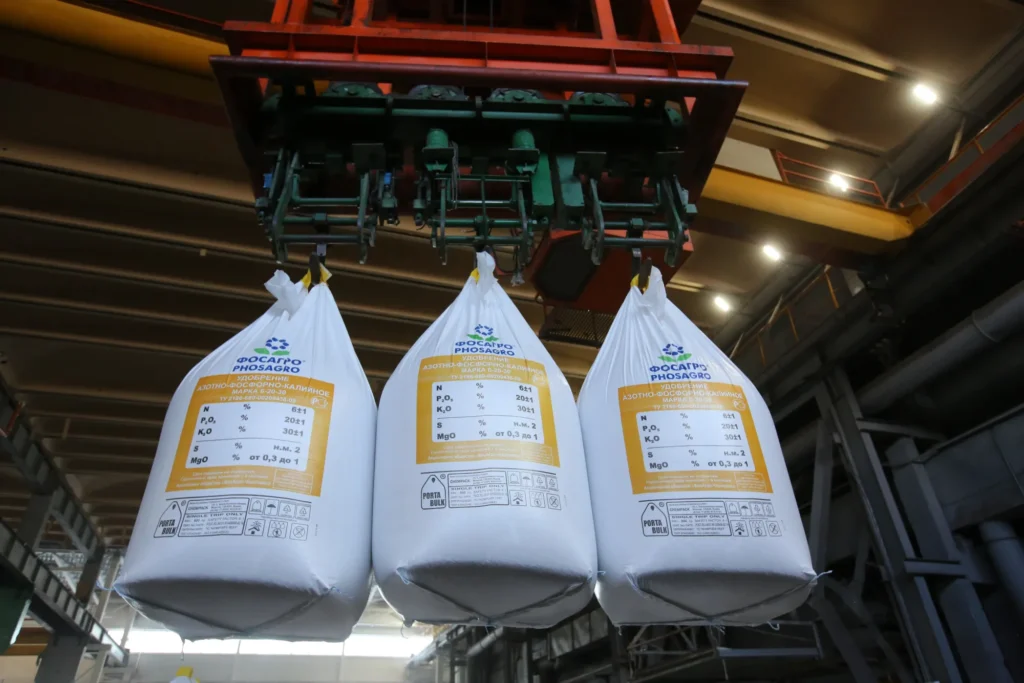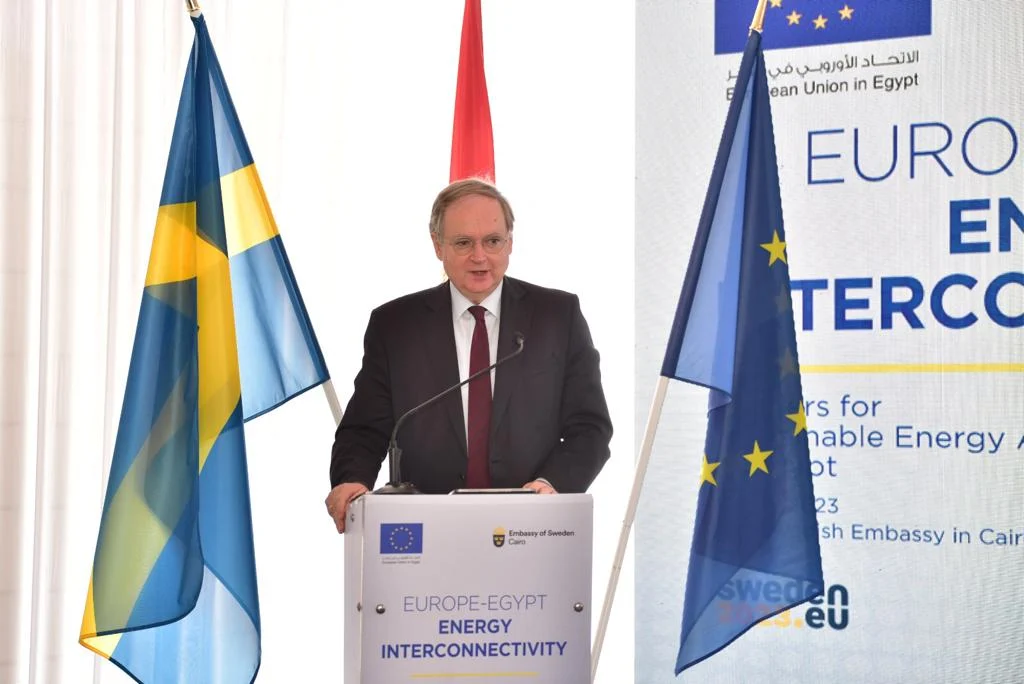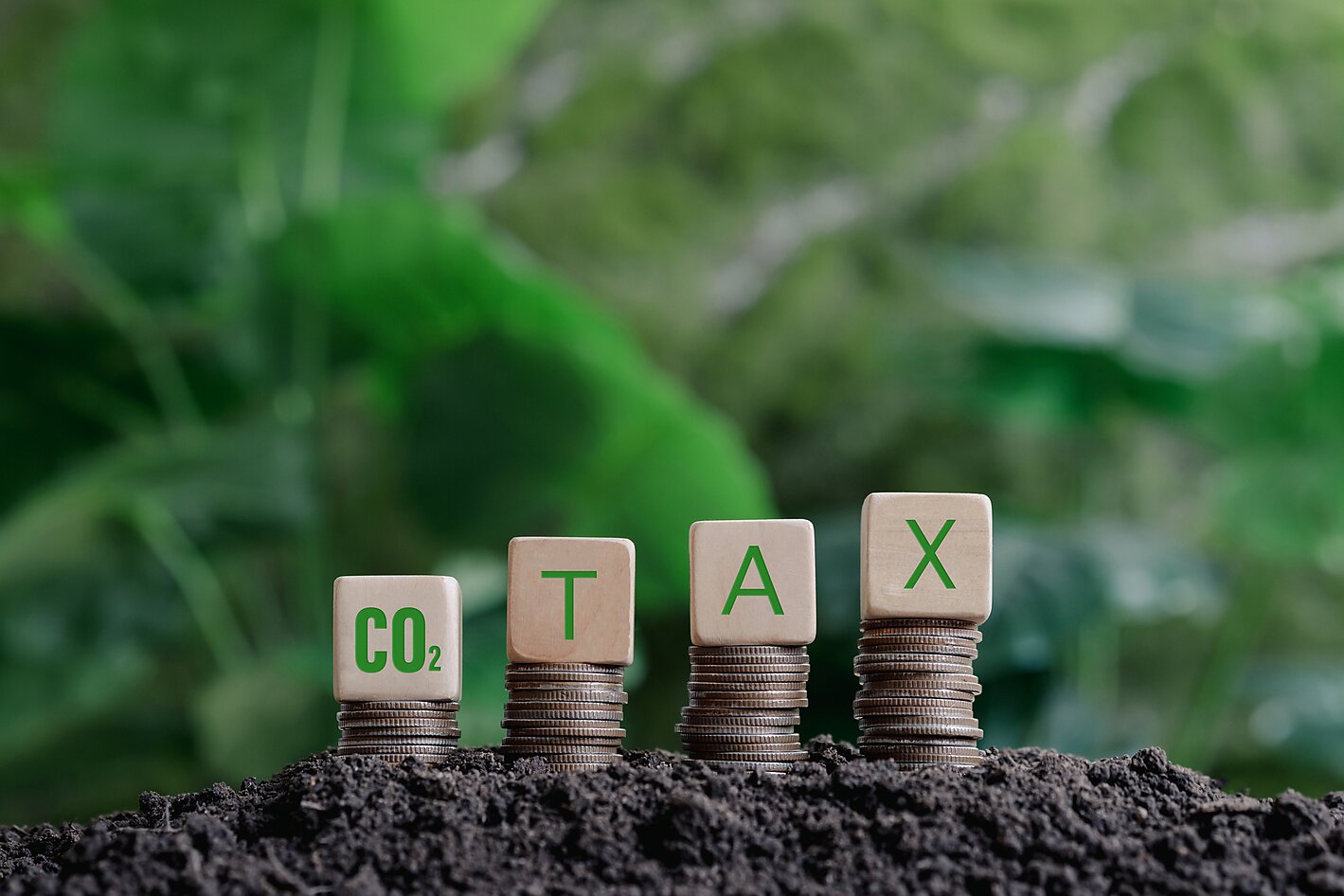Food & Climate
Europe is currently discussing with the authorities of the Middle Eastern countries, the impact of carbon tax on fertilizer exports, especially from Egypt and Morocco, that the EU will begin implementing starting in 2026, according to statements made by a European official to the “Food and Climate” platform, according to statements made by a European official to the “Food & Climate” platform.
The head of the European Union delegation to Egypt, Ambassador Christian Berger, said that Brussels is reviewing and coordinating all the comments it received from those countries in 2025, to make a final decision in this regard.
In response to a question about concerns about fertilizer exports to Europe from the carbon tax in these countries, Berger said: “Many are afraid, but we want companies to become more competitive in international markets. The carbon tax works in both directions.”
Carbon tax
The carbon tax imposed by Europe threatens fertilizer exports from Arab countries located in North Africa, which export their production to Brussels, especially from Egypt, Algeria and Morocco, as the Arab countries in the Gulf sell their fertilizers to Asian markets, so they will not be greatly affected by this tax.
Algerian Minister of Energy and Mines, Mohamed Arkab, had previously indicated that his country’s fertilizer exports amount to 7 million tons annually, varying between manufactured and semi-finished, and include 3 million tons of urea, 2 million tons of processed phosphate, and 2 million tons of ammonia.
While the chemical and fertilizer industries in Egypt amounted to nearly $5 billion in the first 8 months of this year, according to statements by the head of the Export Council, Khaled Abu Al-Makarem.

In June, Egypt was exposed to a crisis in the availability of gas, due to the scarcity of foreign currency, which represents more than 80% of fertilizer production raw materials, which negatively affected fertilizer exports, according to Abu Al-Makarem.
Egyptian fertilizer exports had achieved a historic level in the first 8 months of 2022, as their value amounted to $5.7 billion.
Egypt’s exports of chemical industries and fertilizers amounted to $6.5 billion last year (2023), compared to $8.63 billion in 2022, down by 25%.
The Moroccan Phosphate Organization (OCP) revealed that transactions worth 91.2 billion dirhams ($9.15 billion) were recorded during 2023, with a strong return to activity during the second half of the year.
The Eurostat agency said that the value of European fertilizers imported from Morocco amounted to 111 million euros during the month of July alone, which placed the Kingdom in second place among fertilizer suppliers to the Union. These figures reflect the importance of Morocco in the fertilizer market, in light of the increasing demand from European Union countries.
The carbon tax that Europe will impose on imports of many goods, including Europe itself, may affect its domestic markets, according to a previous statement to the “Food & Climate” platform by the Nikolaos Zaimis, Minister counsellor, and head of trade section in European embassy in Egypt.
“The carbon tax has nothing to do with agriculture or food, because food itself is not included. But fertilizers are among the goods that will be subject to the tax, and their effects will be indirect,” he said.
He added that the impact of the carbon tax on fertilizers is linked to local production, as EU countries need fertilizers to produce food, but when any country exports food to them, it will not be affected.
Impact on fertilizer imports
Indicating the potential impact of the carbon tax on fertilizer imports, which could reach 100 euros per ton, on European markets, is that Russia, which Brussels considers its archenemy and which has sought since the beginning of its war against Ukraine in February 2022, ranked first among fertilizer exporters to the EU last July.
The EU’s Carbon Border Adjustment Mechanism (CBAM) is the EU’s tool to put a fair price on the carbon emitted during the production of carbon intensive goods that are entering the EU, and to encourage cleaner industrial production in non-EU countries, according to European commission website.
By confirming that a price has been paid for the embedded carbon emissions generated in the production of certain goods imported into the EU, the CBAM will ensure the carbon price of imports is equivalent to the carbon price of domestic production, and that the EU’s climate objectives are not undermined. The CBAM is designed to be compatible with WTO-rules.
CBAM will apply in its definitive regime from 2026, while the current transitional phase lasts between 2023 and 2025. This gradual introduction of the CBAM is aligned with the phase-out of the allocation of free allowances under the EU Emissions Trading System (ETS) to support the decarbonisation of EU industry.

The carbon tax covers fertilizers, cement, electricity, and steel.

